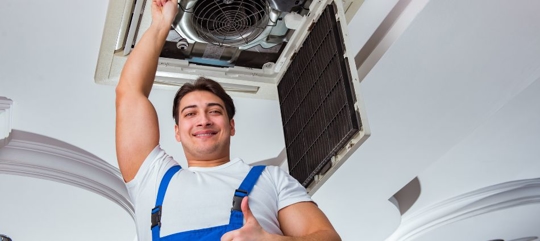Send us an email
Please enter your name and contact info.
Please enter your name and contact info.
Call Us Today! (850) 748-1066

Serving Families Throughout Pensacola

Understanding HVAC (Heating, Ventilation, and Air Conditioning) and AC (Air Conditioning) basics is integral for every homeowner and business owner. A well-functioning HVAC & AC system ensures a comfortable living and working environment, which significantly contributes to overall health and productivity.
HVAC & AC systems consist of several key components:
Provides cooling by removing heat from the indoors and transferring it outside.
It could be a furnace, boiler, or heat pump. This component keeps the indoor environment warm during colder months.
Responsible for the circulation of air within the space and removing impurities.
This is the control unit that allows users to set the desired temperature and control other functions of the system.
HVAC systems encompass the functions of an AC system but provide additional heating and ventilation services. There are different types of HVAC & AC systems, such as Central Air Conditioners, Ductless, Mini-Splits, and Window Units, each suitable for different needs and spaces.
Proper installation of HVAC & AC systems is essential for their efficient operation. It involves choosing the correct size and type of the system, preparing the installation site, installing the indoor and outdoor units, and setting up the control systems.
Maintaining your HVAC & AC system regularly is crucial for optimal performance. Routine maintenance includes cleaning or replacing air filters, checking system controls, cleaning the evaporator and condenser coils, and ensuring the correct amount of refrigerant. DIY maintenance can help extend the system’s life, but professional HVAC service is recommended for more complex tasks.
Energy-efficient HVAC systems are not just beneficial for the environment; they can also result in significant cost savings. HVAC energy consumption can be reduced by regular maintenance, proper insulation, using programmable thermostats, and replacing old units with Energy Star-rated ones.
Common HVAC & AC problems include refrigerant leaks, dirty filters, thermostat issues, and drainage problems. While some of these can be addressed with DIY HVAC repair, serious issues require professional help. The cost of HVAC repair or replacement depends on the type and extent of the problem.
The HVAC industry is undergoing constant technological advancements. Smart HVAC systems, which connect to Wi-Fi and can be controlled remotely, are gaining popularity. Artificial Intelligence (AI) and the Internet of Things (IoT) are also being integrated into HVAC systems for better energy management and predictive maintenance.
Factors to consider when choosing an HVAC & AC system include the size of your home or business, the local climate, energy efficiency, and your budget. Additionally, it’s important to choose a reputable HVAC manufacturer and consider the system’s warranty.
HVAC & AC systems play a vital role in maintaining indoor air quality by controlling the temperature and humidity levels and removing pollutants. Regular HVAC maintenance, including cleaning or replacing air filters, helps improve indoor air quality and can be particularly beneficial for people suffering from allergies.
HVAC & AC standards like SEER (Seasonal Energy Efficiency Ratio), EER (Energy Efficiency Ratio), and HSPF (Heating Seasonal Performance Factor) ratings provide consumers with information about a unit’s energy efficiency. Additionally, local, state, and federal HVAC regulations ensure the safety and energy efficiency of HVAC & AC systems.
Understanding HVAC & AC basics empowers consumers to make informed decisions about their systems, leading to cost savings, energy efficiency, and improved comfort and health. Stay up-to-date with the latest HVAC & AC trends, and always consult with a professional HVAC technician for installation, significant repairs, and regular maintenance.